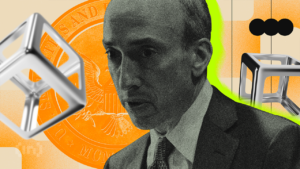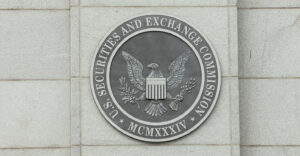Argentinians Turn to Bitcoin Amid Increasing Inflation Rates: Report

In the face of relentless inflation and economic instability, Argentinians are increasingly turning to Bitcoin as a refuge, with recent data indicating a surge in purchases of the cryptocurrency.
This trend comes as Bitcoin has experienced a remarkable rally in recent months, hitting record highs and outpacing traditional hedges against inflation, such as the U.S. dollar.
Bitcoin Purchases Soar in Argentina
According to a Bloomberg report, in the first week of March alone, the number of weekly Bitcoin purchases in Argentina soared to 34,700, marking the highest volume seen in the country in 20 months. This surge represents more than double the levels observed in early February, showing Argentinians’ growing interest and adoption of Bitcoin.
The appeal of Bitcoin as a hedge against inflation has intensified as the cryptocurrency has witnessed substantial gains, rising as much as 73% year-to-date and reaching an all-time high of over $73,000. This surge has been attributed to various factors, including the introduction of the U.S.’ first spot Bitcoin exchange-traded funds (ETFs) and anticipation surrounding the upcoming halving event scheduled for April.
Argentina’s inflation rate, currently at 276%, has eroded the value of the national currency, the peso, prompting citizens to seek alternative stores of value. Traditionally, the U.S. dollar has been the preferred choice for Argentinians seeking stability amidst economic turmoil. However, the recent strengthening of the peso, coupled with government efforts to stabilize the currency, has diminished the appeal of the greenback.
Dollarization Remains a Distant Prospect
President Javier Milei’s administration has taken steps to address economic challenges, including efforts to clean up the central bank’s balance sheet. While Milei had campaigned on a promise to dollarize Argentina’s economy, his approach since taking office has focused on managing the peso’s valuation rather than immediate dollarization. He has also suggested that full dollarization remains a distant prospect.
The shift towards Bitcoin as a hedge against inflation and economic uncertainty has also led to a decline in demand for traditional assets, including digital tokens tied to real-world currencies such as USDT and USDC.
Argentina has a history of economic instability, marked by frequent devaluation of its currency, which poses challenges for its residents in saving and managing finances. This has increased interest in cryptocurrency in the country, driven by the desire to avoid the effects of peso devaluation, high inflation, and limitations on accessing foreign currencies.
LIMITED OFFER 2024 for CryptoPotato readers at Bybit: Use this link to register and open a $500 BTC-USDT position on Bybit Exchange for free!













